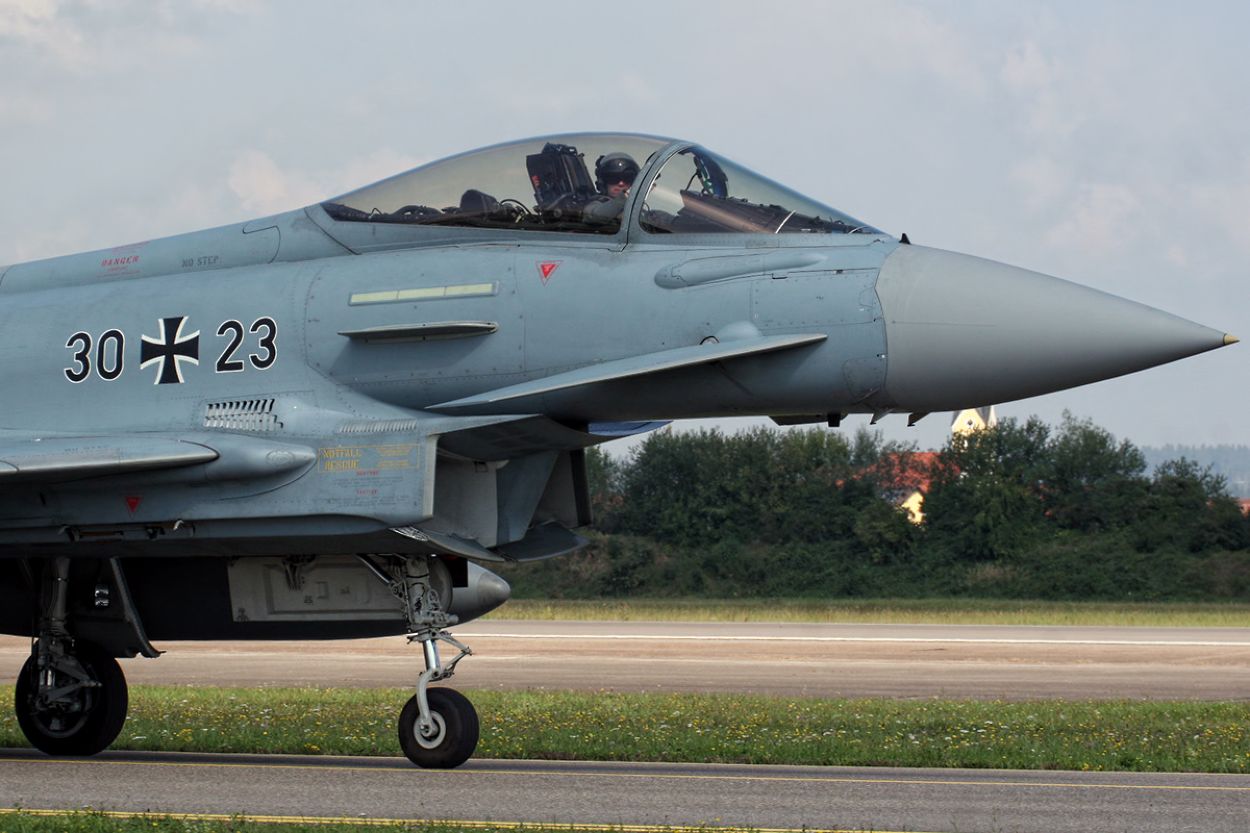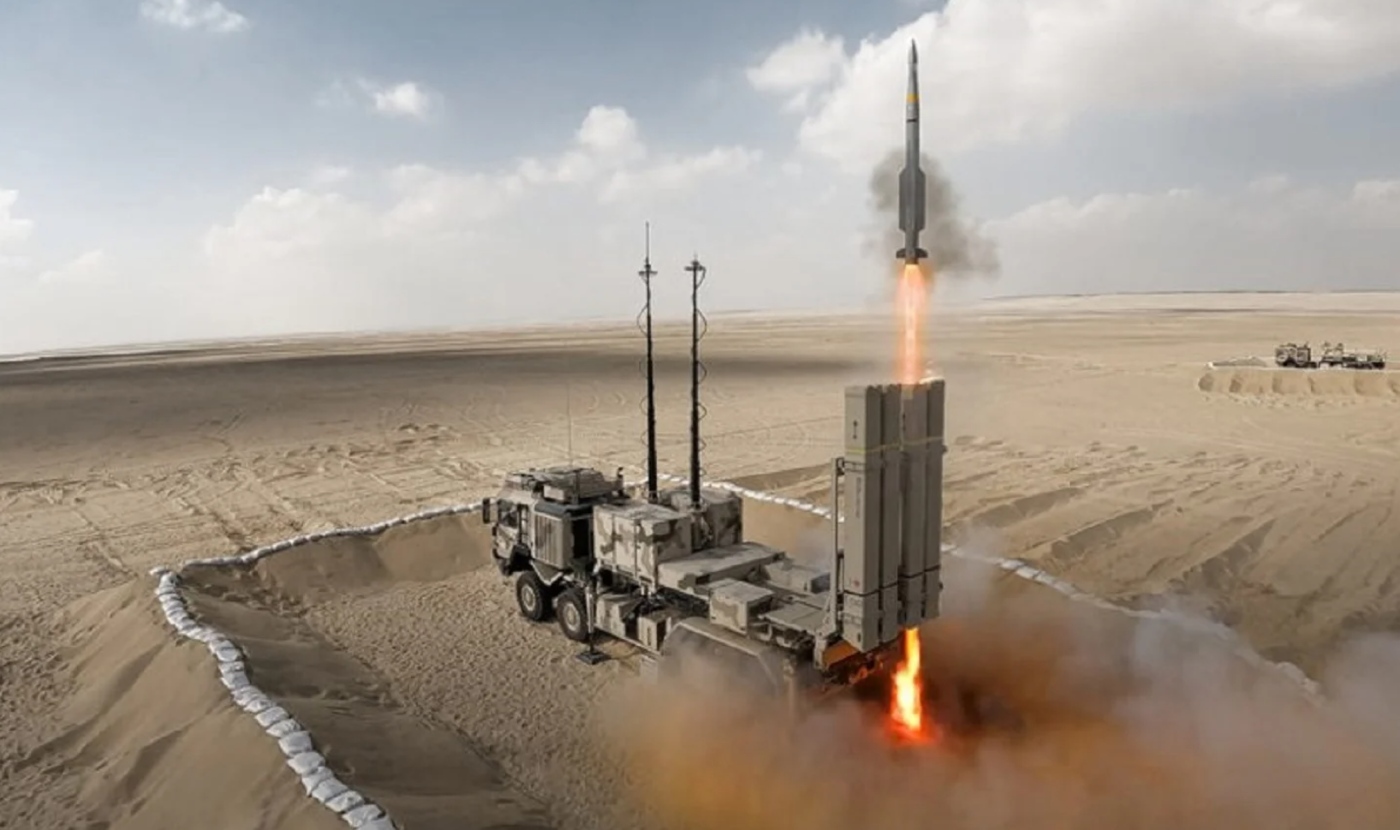It’s widely known that crisis-hit regions like Ukraine and Israel receive the lion’s share of their weapons from the United States. However, who takes the second spot?
It’s Germany – a nation historically marked by its involvement in two world wars. Despite enduring significant losses in World War II and having much of its military infrastructure and defense industry dismantled after the Potsdam Conference, Germany has reemerged as a significant contributor to arms exports.
Having risen from the ashes of World War II, Germany’s defense sector has become one of the world’s largest, accounting for 5.6% of global arms exports from 2019 to 2023. It consistently ranks among the top five defense suppliers internationally.
According to a report by the Stockholm International Peace Research Institute (SIPRI), Germany currently holds the position of the world’s fifth-largest defense exporter, trailing behind the US, France, Russia, and China.
From Disarmament To Leading Defense Exporter
Following the devastating losses of World War II, both in terms of lives lost and industrial capacity, Germany underwent a significant period of disarmament and demilitarization.
After surrendering, as outlined in the Potsdam Conference agreements, Germany found itself under Allied occupation, initiating a restructuring process. This involved dismantling much of its military infrastructure, including the defense industry.
The Allies imposed strict limitations on Germany’s ability to produce weapons and military equipment, forcing many German defense firms to shift their focus to civilian goods production.
Despite the considerable challenges, Germany gradually regained significance, particularly amidst the Cold War tensions. In May 1955, West Germany’s integration into NATO and its commitment to collective defense substantially boosted its defense industry.
Also, with the end of the Cold War and German reunification in 1990, the defense industry underwent significant restructuring. The German defense sector underwent rapid rearmament and modernization efforts throughout this period. Companies like Rheinmetall, ThyssenKrupp, and Krauss-Maffei Wegmann gained renown for producing cutting-edge military technology, including tanks, aircraft, and naval vessels.
Today, Germany has ascended as a major exporter of defense equipment, reflecting its remarkable evolution from post-war disarmament to becoming a significant player in the global defense industry.
Germany’s Export to Israel
Germany’s exports to Israel play a role in boosting Israel’s defense capabilities. While Israel is a major weapons exporter, it relies heavily on imports for aircraft, guided bombs, and missiles.
According to SIPRI figures, the United States remains Israel’s primary arms provider, accounting for 69% of its arms imports, while Germany contributed 30% in 2019-23.
Germany emerged as Israel’s second-largest arms supplier after the United States, with approved sales totaling $353.70 million in 2023. During the same year, German defense export approvals for Israel experienced a nearly tenfold increase to approximately $351 million compared to 2022. This surge was prompted by Berlin’s prioritization of permit requests following Hamas’ attack on Israel on October 7, which ignited the Gaza war.
According to Deutsche Presse-Agentur, a German news agency, Germany primarily supplies Israel with components for air defense systems and communications equipment. Exported weapons include 3,000 portable anti-tank weapons and 500,000 rounds of ammunition for automatic or semi-automatic firearms.
However, In April 2024, the International Court of Justice ruled against issuing emergency measures over German arms sales to Israel, as requested by Nicaragua – a country in Central America.
Nicaragua argued that there was a serious risk of genocide in Gaza amid Israel’s assault on the Palestinian territory. The court reminded Germany of its obligation under international law not to provide weapons that could be used for human rights violations.
In April 2024, the International Court of Justice dismissed Nicaragua’s request for emergency measures against German arms sales to Israel. Nicaragua had argued that Israel’s assault on Gaza posed a risk of genocide, reminding Germany of its obligation under international law to refrain from supplying weapons that could be used for human rights violations.

Germany’s Support For Ukraine
Historically, Germany has maintained its position as Ukraine’s foremost military supporter in Europe and globally, ranking second only to the United States.
As Russia’s military aggression against Ukraine escalated, Germany swiftly emerged not only as a crucial political and defense ally but also as a vital economic partner, supplying essential oil products and goods critical for Ukraine’s economy.
According to a BBC news report, between February 2022 and the end of February 2024, Germany provided Ukraine with weapons and equipment valued at a staggering $10.7 billion, solidifying its position as one of Ukraine’s top military aid donors.
Among the military assets extended to Ukraine are the Iris-T medium-range infrared homing air-to-air missile and Leopard 2 tanks, underscoring Germany’s commitment to bolstering Ukraine’s defense capabilities.

Moreover, Germany has actively contributed to enhancing Ukraine’s military readiness by training over 10,000 Ukrainian soldiers within its borders. The training expenses have totaled approximately $304 million (282 million euros), reflecting Germany’s ongoing investment in Ukraine’s security.
Additionally, Germany has allocated undisclosed funds for the medical treatment of injured Ukrainian soldiers, further demonstrating its unwavering support for Ukraine’s sovereignty and territorial integrity amidst ongoing hostilities.
Now, Germany is setting its sights on the Indo-Pacific region as a burgeoning market for defense exports.
With a keen awareness of China’s growing assertiveness, German Economy Minister Robert Habeck emphasized the need to bolster the nation’s defense capabilities during discussions with industry stakeholders in March 2024. This renewed focus includes prioritizing defense production and exports, particularly to key markets like India.
Recognizing the region’s geopolitical significance, Germany is actively strengthening ties with India. This includes simplifying clearance and licensing procedures for military sales and removing restrictions on small arms and spare parts sales. Initiatives like Project 75 India, involving German giant Thyssenkrupp Marine Systems and Indian counterpart Mazagon Dockyards Limited, are being considered to deepen collaboration.
As Germany intensifies its engagement in defense production and exports, its journey from post-war disarmament to becoming a significant player in the global arms trade stands as a testament to its resilience and strategic adaptability in the face of evolving security challenges.
- Penned By: Shubhangi Palve
- Contact the author at shubhapalve (at) gmail (dot) com.




